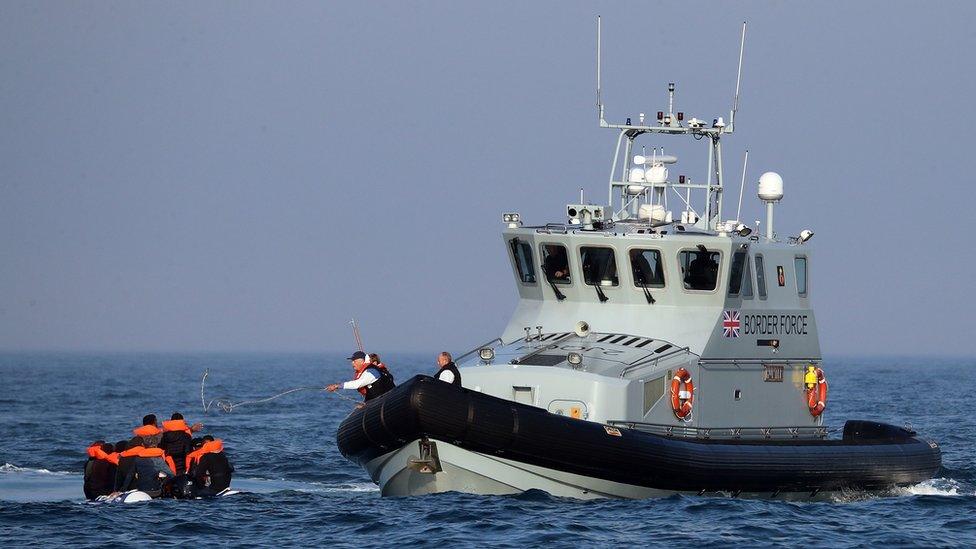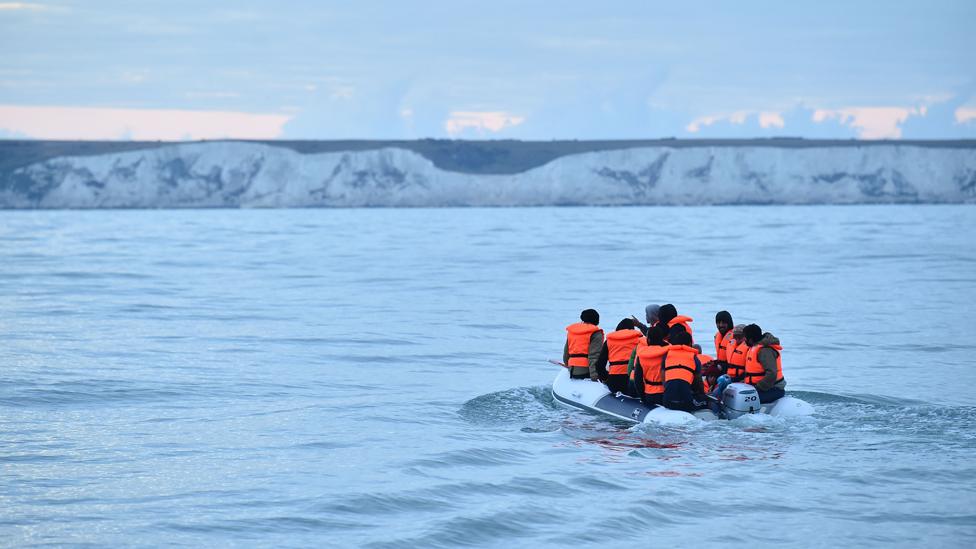Channel crossings: Suspected people-smuggling gang arrested in raids
- Published
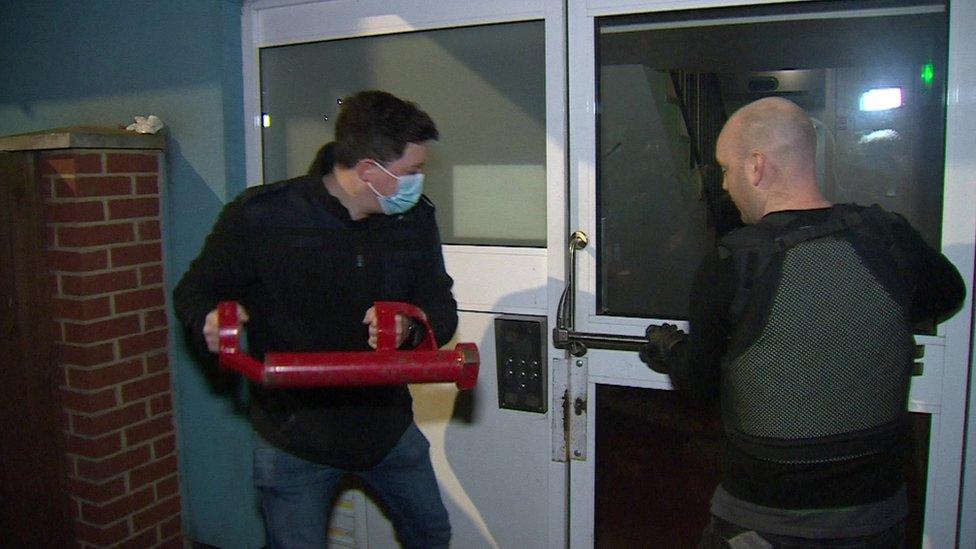
Immigration Enforcement broke into a block of flats in north-west London to detain a 36-year-old British Syrian man
A suspected people-smuggling gang accused of bringing hundreds of people to the UK in small boats has been broken up, the Home Office says.
A 36-year-old British Syrian man was detained at his flat in north-west London on Thursday morning, bringing the total number of arrests to 14.
The group is alleged to have helped more than 600 people cross the Channel in May alone.
About 80% of the people they are thought to have smuggled were Syrian.
Home Secretary Priti Patel, who watched the raid being carried out, said she had "repeatedly and unapologetically" pointed out that smuggling people by illegal means put lives at risk.
"We have seen people die this year in the Channel," she said. "It is absolutely right that we do everything, we use all the tools we have from a law enforcement perspective, to go after them."
The rest of the group were arrested in raids in London and Sheffield over several months.
Channel crossings by migrants increased sharply from April, with more than 8,200 people making the journey in small boats so far in 2020, compared to 1,844 last year and 299 in 2018.
Most claim asylum on arrival in the UK, but the overall numbers doing so have fallen in 2020 as the pandemic has meant other routes - by road and air - have been less accessible.
Campaigners say asylum seekers - most of whom have fled places such as Iran, Iraq and Syria before making the Channel crossing - have no choice but to enter the UK illegally, as it is not possible to apply for asylum outside the country and there are no safe and legal routes.
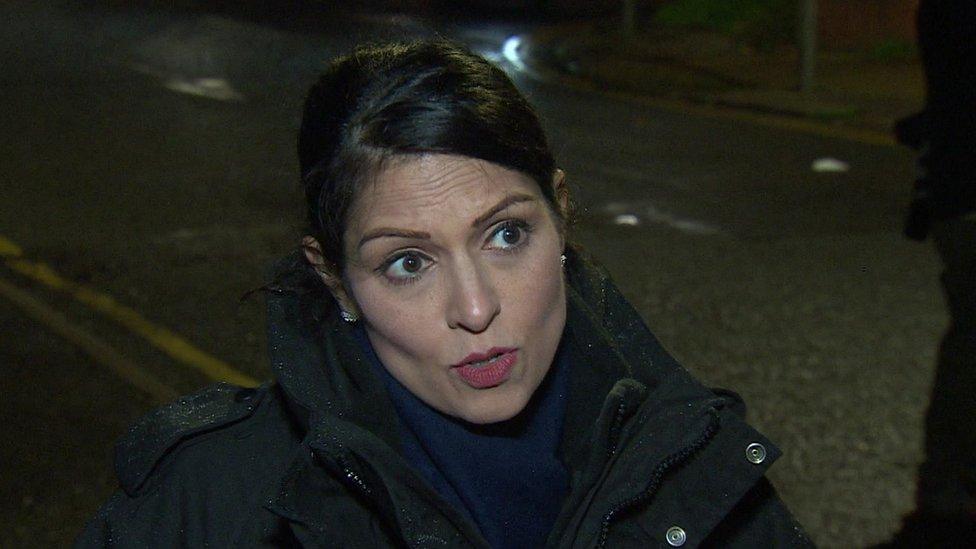
Priti Patel said French authorities were successfully preventing crossings in small boats
The home secretary praised the French authorities for taking stronger action to prevent boats from departing, saying that on one day when 20 people made it across, more than 200 had been stopped from leaving the beaches of Normandy.
These interventions have contributed to a 65% fall in the number of crossings on days when the sea is calm, the Home Office said. The number of crossings peaked at 1,868 for the month of September.
"They have actually been going into the waters to stop boats from listing and sinking to save lives and it's absolutely the right thing to do," Ms Patel said. "These routes are dangerous. Lives have been put at risk."
Both the French and UK governments were committed to making this route "unviable", she said. "We want to cut this route completely and we will stop at nothing to try and do that."
She said people should seek asylum in the first safe country they can get to, adding that "European member states are safe countries".
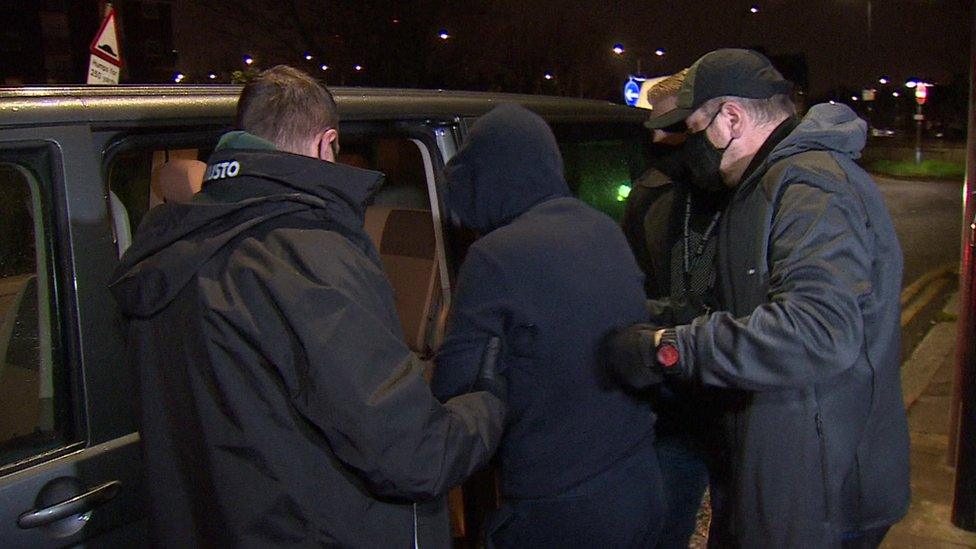
At the raid attended by the home secretary and the media, one 36-year-old man was arrested
Under a new agreement with France which began at the weekend, the UK is paying £28m towards doubling the number of police officers on beaches and on surveillance technology such as drones, radar and cameras.
Ms Patel said when the Brexit transition period ends in January, the UK government will negotiate agreements with individual EU countries such as France to return people who could have claimed asylum earlier in their journeys through Europe.
"We will start negotiating bilaterally, country by country, and we are already making that very, very clear to EU member states. Bilateral relations matter," she said.
Existing agreements on returning asylum seekers will expire with the Brexit transition period and negotiations with the EU have so far failed to produce an agreement.


- Published28 November 2020
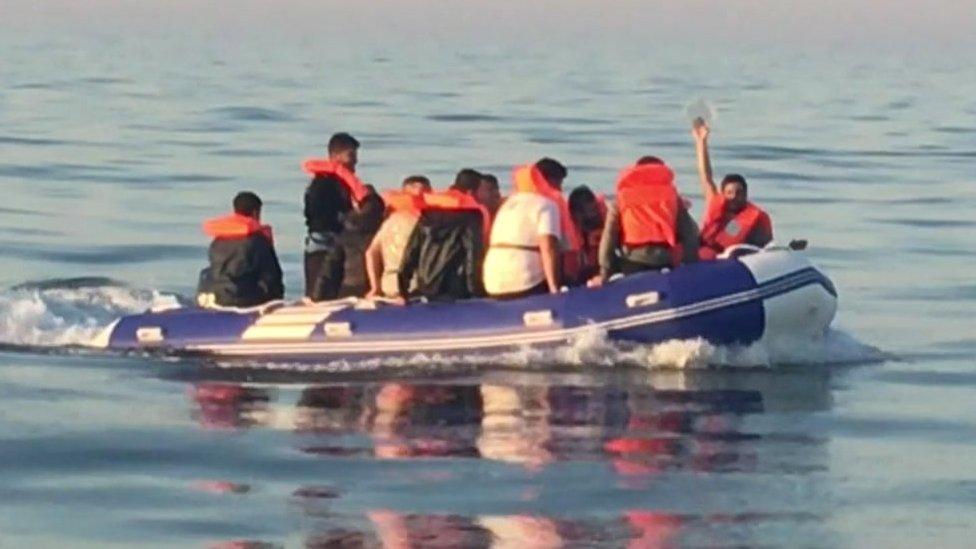
- Published11 November 2020
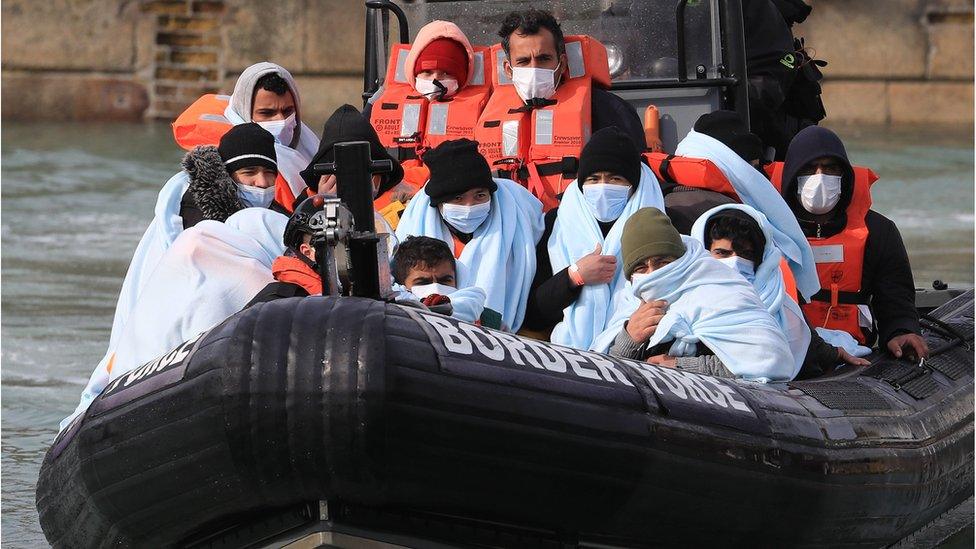
- Published20 August 2020
